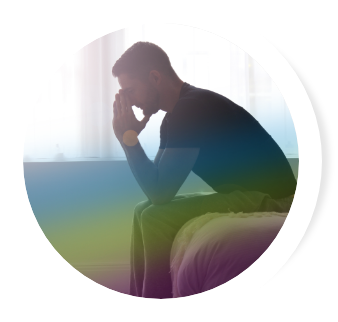Sadness is a normal part of life. Everyone feels the “blues” every now and then. Most of the time, sadness comes on as a result of a situation that happens in our lives. Sadness is typically passing and resolves itself with time.
When you experience depression, you’re experiencing more than just passing sadness. Depression is when you feel severe despair over a long period of time. It affects all aspects of your life, including your mental health, physical health, relationships, work, and personal goals. As a hypo-arousal emotion, depression takes away your energy, making it difficult to fulfil your normal daily functions. You may have trouble getting out of bed in the morning, engaging with others, finding interest in things you used to enjoy, feel worthless or hopeless, and find it hard to concentrate.
An estimated 1 in 4 Canadians will experience depression that is serious enough to require treatment at some point in their lives. It is among the most common mental disorders and can affect anyone regardless of age, gender, and socioeconomic status. It is believed that many different factors cause depression, including genetics, family history, environmental factors, biological factors, personality, and physical illness and major life changes. While depression may not go away on its own, it is treatable with professional support.

Symptoms
There are several symptoms of Generalized Anxiety Disorder, including:
- Sadness
- Loss of interest or pleasure
- Feeling low self-worth
- Feelings of guilt
- Feeling hopeless
- Poor concentration and/or memory
- Sleep difficulties
- Appetite and/or weight changes
- Aches and pains
- Headaches
Treatment
If you are struggling with sadness or depression, here are some next steps for you:
- Focus on what you can control. Often, the tasks of getting out of bed and brushing your teeth can be huge accomplishments. Noting that you are in control of what you do can sometimes break the cycle of depressive thoughts.
- Gratitude list: Write a list of things that happened during your day that you are grateful for. Often, opening up more positive pathways in our brains can be helpful.
- Counselling has been proven to be very effective in helping individuals overcome depression. Not only can a mental health professional help teach you the strategies needed to help stop the depressive cycle, they can also help you use them correctly.
- Depression is usually treated with medications, psychotherapy, or a combination of the two. You should consult your doctor to choose the treatment that is best for you.
Content adapted with permission from Dalton Associates.
